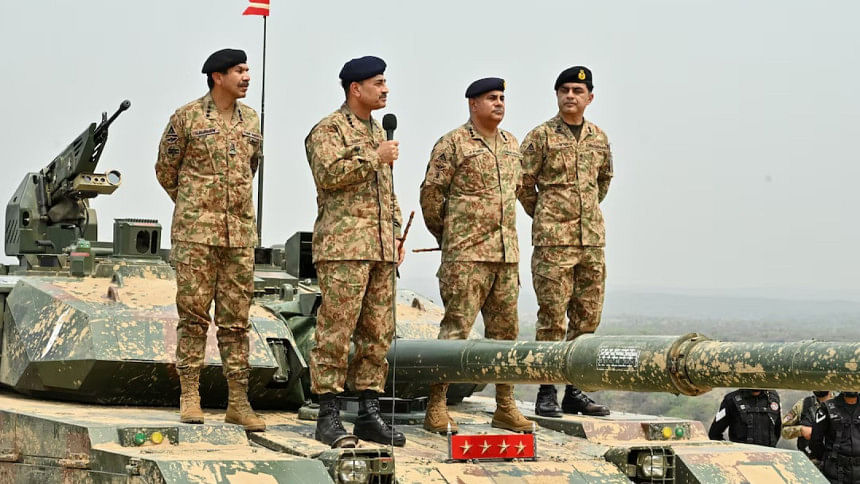Trump-Pakistan shift: India recalibrates its relations with China

US President Donald Trump's lunch meeting with Pakistan's military chief prompted a private diplomatic protest from India in a warning to Washington about risks to their bilateral ties while New Delhi is recalibrating relations with China as a hedge, officials and analysts said.
The meeting and other tensions in the US-India relationship, after decades of flourishing ties, have cast a shadow in trade negotiations, they said, as Trump's administration weighs tariffs against one of its major partners in the Indo-Pacific.
India blames Pakistan, especially its military establishment, for supporting what it calls cross-border terrorism and has told the US it is sending the wrong signals by wooing Field Marshal Asim Munir, three senior Indian government officials directly aware of the matter told Reuters.
It has created a sore spot that will hamper relations going forward, they said. Pakistan denies accusations that it supports militants who attack Indian targets and that New Delhi has provided no evidence that it is involved.
US-India ties have strengthened in the past two decades despite minor hiccups, at least partly because both countries seek to counter China. The current problems are different, said Michael Kugelman, a Washington-based senior fellow at the Asia Pacific Foundation think tank.
"The frequency and intensity with which the US is engaging with Pakistan, and seemingly not taking Indian concerns into account, especially after India's recent conflict with Pakistan, has contributed to a bit of a bilateral malaise."
"The concern this time around is that one of the triggers for broader tensions, that being Trump's unpredictability, is extending into the trade realm with his approach to tariffs," he said.
Prime Minister Narendra Modi's office and India's foreign ministry did not respond to a request for comment. The foreign ministry has previously said that it had "taken note" of the Trump-Munir meeting.
India, like other nations, is trying to figure out a way to deal with Trump and is recalibrating ties with China as a hedge, said Harsh Pant, foreign policy head at India's Observer Research Foundation think tank.
"Certainly there is an outreach to China," he said. "And I think it is mutual...China is also reaching out". Last week, India's Jaishankar made his first visit to Beijing since a deadly 2020 border clash between Indian and Chinese troops.
India is also making moves to ease restrictions on investments from China that were imposed following the 2020 clash.
The thaw comes despite India's prickly relations with China and Beijing's close ties and military support to Pakistan.
But New Delhi's concern about Trump's own engagement with China, which has ranged from conciliatory to confrontational, appears to have contributed to its shift in stance on Beijing.
"With an unpredictable dealmaker in the White House, New Delhi cannot rule out Sino-US rapprochement," said Christopher Clary, an associate professor of political science at the University at Albany, New York.
"India is troubled by Chinese help to Pakistan and growing Chinese influence elsewhere in India's near abroad, such as Bangladesh. Yet New Delhi has largely concluded that it should respond to creeping Chinese influence by focusing its pressures on its nearest neighbours and not on China."

 For all latest news, follow The Daily Star's Google News channel.
For all latest news, follow The Daily Star's Google News channel. 



Comments